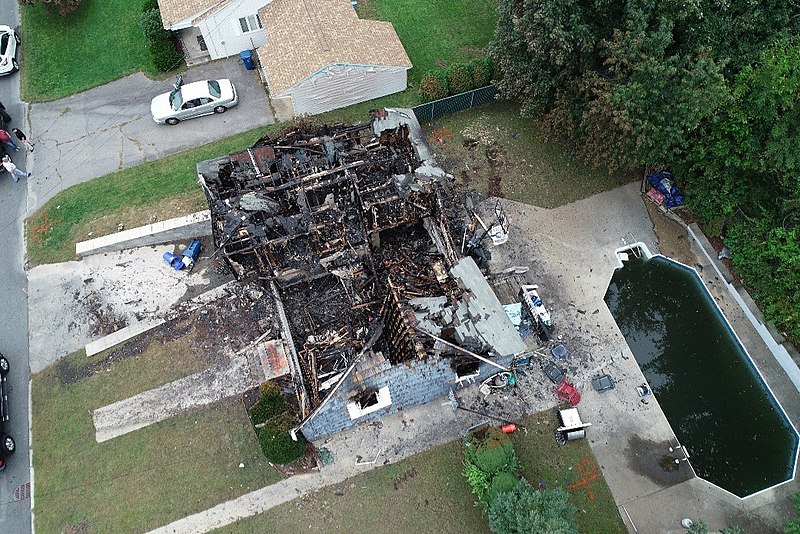
By Aditya Jain
Governments have embraced natural gas as a “bridge fuel” to completely renewable energy sources, yet natural gas is far from a clean energy source (“It’s Time to Switch from Gas to Clean Energy,” BCF Newsletter, August/September 2021). Natural gas leaks in streets and homes cause significant public health hazards and environmental damage.
Across Massachusetts, gas leaks are often underestimated by officials and underserved by gas companies. While numerous gas leaks in Belmont are listed and mapped, other communities of underrepresented minorities face the heaviest burden of this pollution. Massachusetts-based energy researchers analyzed gas leaks in different geographic areas in a recent study (Marcos Luna, Dominic Nicholas, “An environmental justice analysis of distribution-level natural gas leaks in Massachusetts”). Their findings show that the people most exposed to gas leaks in the Commonwealth are people of color, people who speak limited English, lower-income households, renters, and adults with lower levels of education.
As previously cited in the August/September 2021 BCF Newsletter (from a Sierra Club analysis), Massachusetts ratepayers pay up to $128 million annually in natural gas repairs. Much of this spending is directed toward fixing aging infrastructure, such as in Boston, where pipes made of cast iron and other corrosive and leak-prone materials are over 50 years old (Boston: Snapshot of natural gas leaks under the streets, Environmental Defense Fund). Luna and Nicholas’s findings reveal that these repairs are distributed unequally; whiter, older communities have repairs completed the quickest, even when these communities are located in the same utility region as communities of people of color.
Efforts have been made to hold natural gas companies accountable for disproportionate levels of environmental harm occurring within their purview. Brooklyn, New York, groups Brownsville Green Justice and the Indigenous Kinship filed a federal lawsuit this year to charge their local provider National Grid under the Civil Rights Act for failing to comply with local environmental justice regulations, building pipelines concentrated in communities of color.
Yet amid the growing urgency of today’s climate crisis, why continue to maintain the natural gas bridge at all? Financial investments in natural gas infrastructure only prolong public health exposure to methane emissions, which are 25 times as potent as carbon dioxide as an agent of climate change. Simultaneously, leaky gas mains exacerbate the inequities in health, environmental risk, and procedural justice that exist across socioeconomic lines. While we face a relatively light hazard exposure in Belmont, we can call for change by advocating for systemic electrification, a cost-effective solution with renewable energy potential across the Commonwealth.
Massachusetts’ electric grid is getting cleaner. To meet the Commonwealth’s 2050 net-zero emissions target, state policy dictates an annual increase of 3% in renewable grid sources. By 2030, municipal light plants such as Belmont Light will be required to source half of their electricity from non-carbon-emitting sources. A progressively cleaner grid is an opportunity for communities to reduce local emissions. Options include replacing natural gas-powered thermal systems with electric heat pumps (an efficient, heat-transferring technology), and replacing gas-powered appliances such as stoves and clothes dryers with electric alternatives.
This process does not have to exclude natural gas companies, however. On a larger scale, existing pipeline infrastructure can be repurposed for new, renewable fuels and technologies, such as ground-source heat pumps, biogas, hydrogen fuels, and carbon capture. Research into this prospect has started with California provider SoCalGas, the largest gas utility in the United States, and their pledge to achieve net-zero emissions in “operations and delivery of energy” by 2045.
Whether on a community level or through larger, regional changes, the path to electrification has the potential to be an agent for energy and environmental equity in Massachusetts communities. By delivering clean electricity first to people most impacted by natural gas emissions, state policy can work to reverse decades of disproportionate emissions and environmental harm. Policy makers must prioritize their efforts in environmental justice communities to ensure that solutions to promote electrification, such as clean energy retrofits, decentralized solar power, and incentive programs,are readily accessible to all.
Aditya Jain is a 2022 graduate of Belmont High School. He will be attending Columbia University in the fall.



Sorry, the comment form is closed at this time.